Weekly Indices
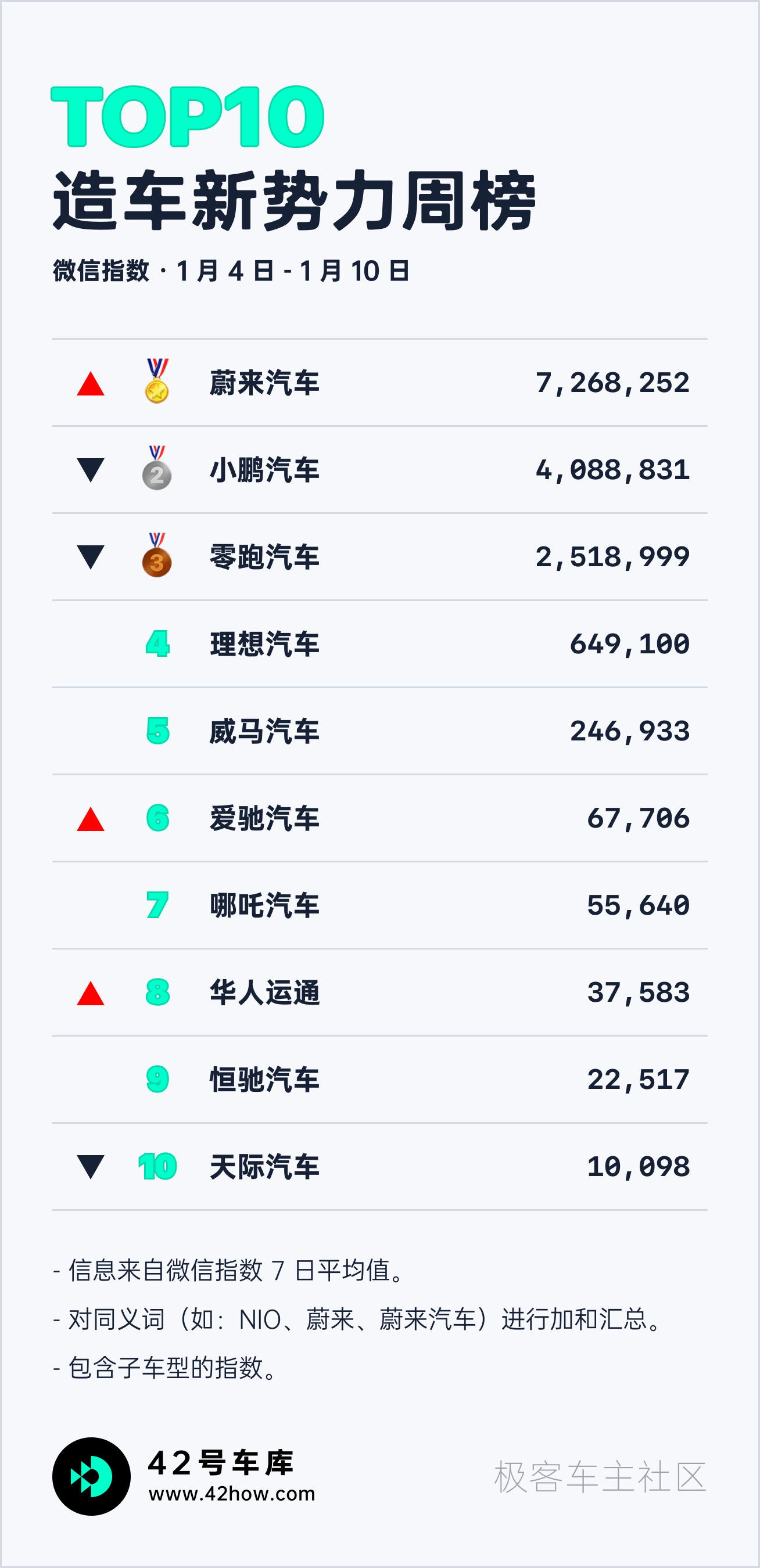

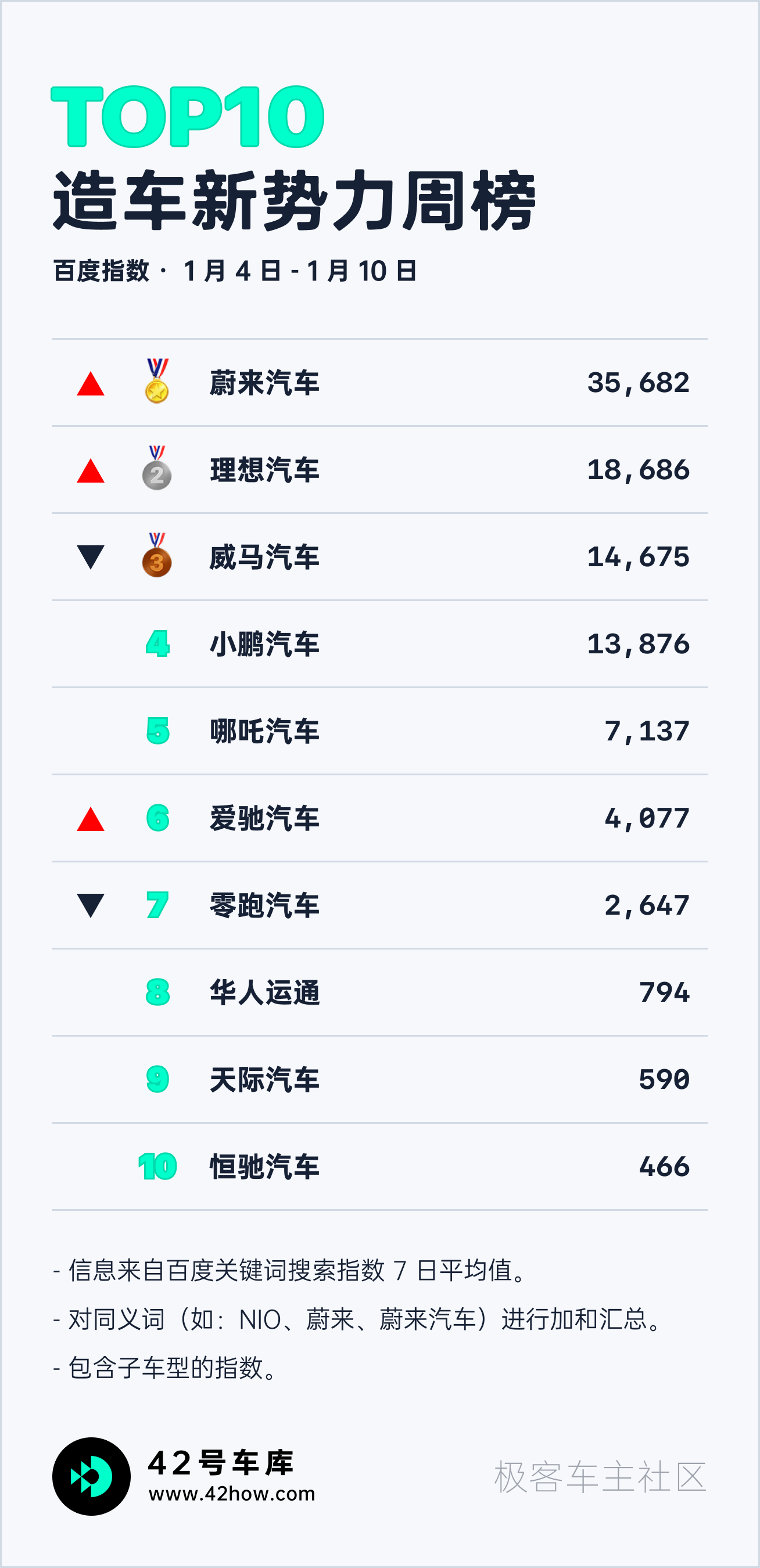
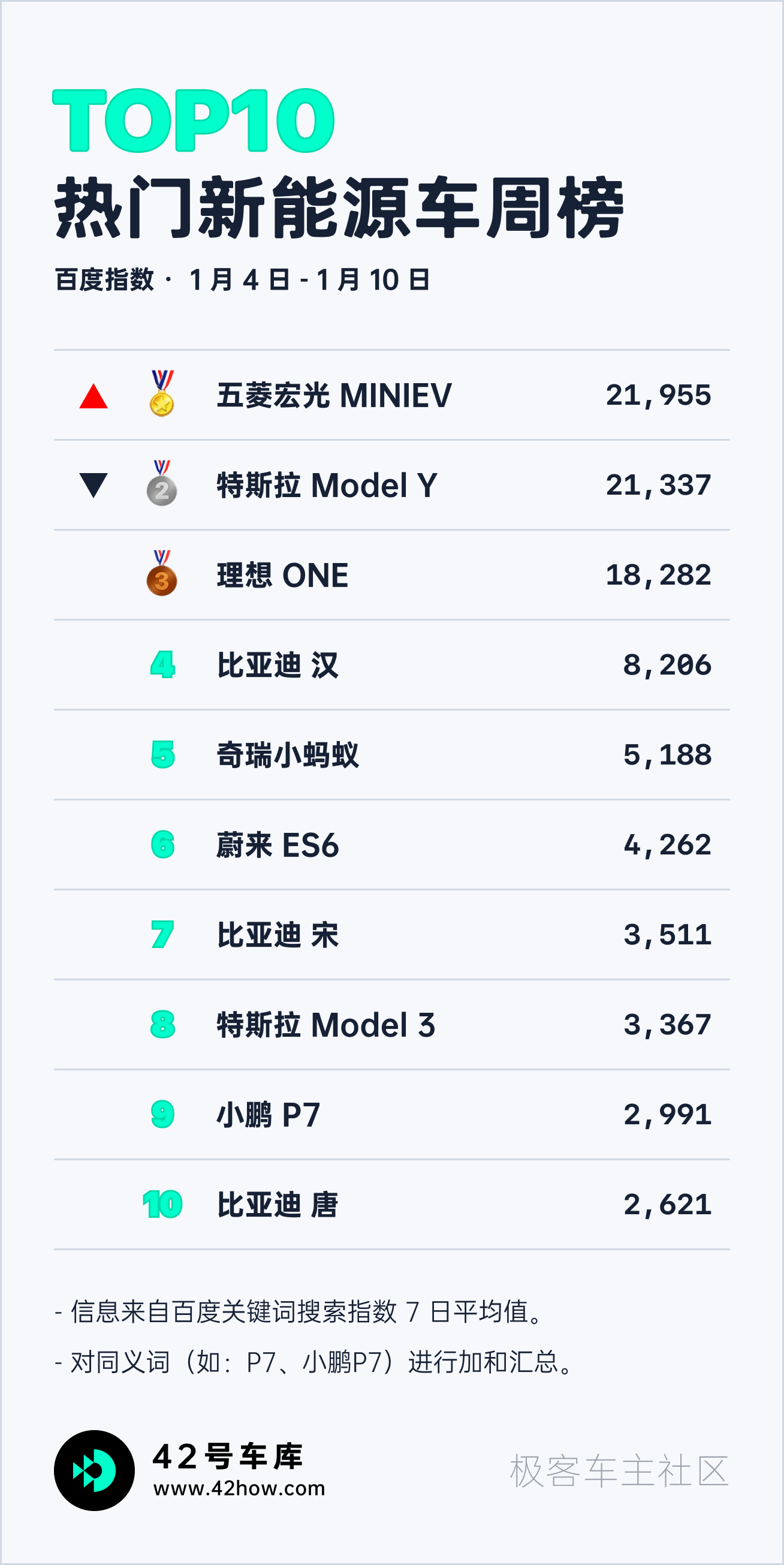
Weekly News
NIO Releases Its Flagship Sedan ET7
On January 9th, NIO Day 2020 was held in Chengdu, and NIO released information about the second-generation battery swapping station, 150-degree battery packs, its flagship sedan ET7, NIO Autonomous Driving (NAD) system, NIO Sensing System (AQUILA), NIO Power Cloud and ADAM, autonomous driving algorithms, autonomous driving platforms, and laser radar.

Among them, the ET7 and laser radar can be said to be the highlights previously announced. As NIO’s first flagship sedan, the ET7 is positioned at the same level as the BMW 7 series. The entire line is equipped with air suspension, electric suction doors, heated, ventilated, and massaging front and rear seats, Microfiber ultra-fine suede roof, air purification system, fragrance system, 23 speakers with 7.1.4 immersive sound system, UWB digital key, 10.2-inch HDR digital instrument panel, and 12.8-inch AMOLED central control screen, fully equipped.
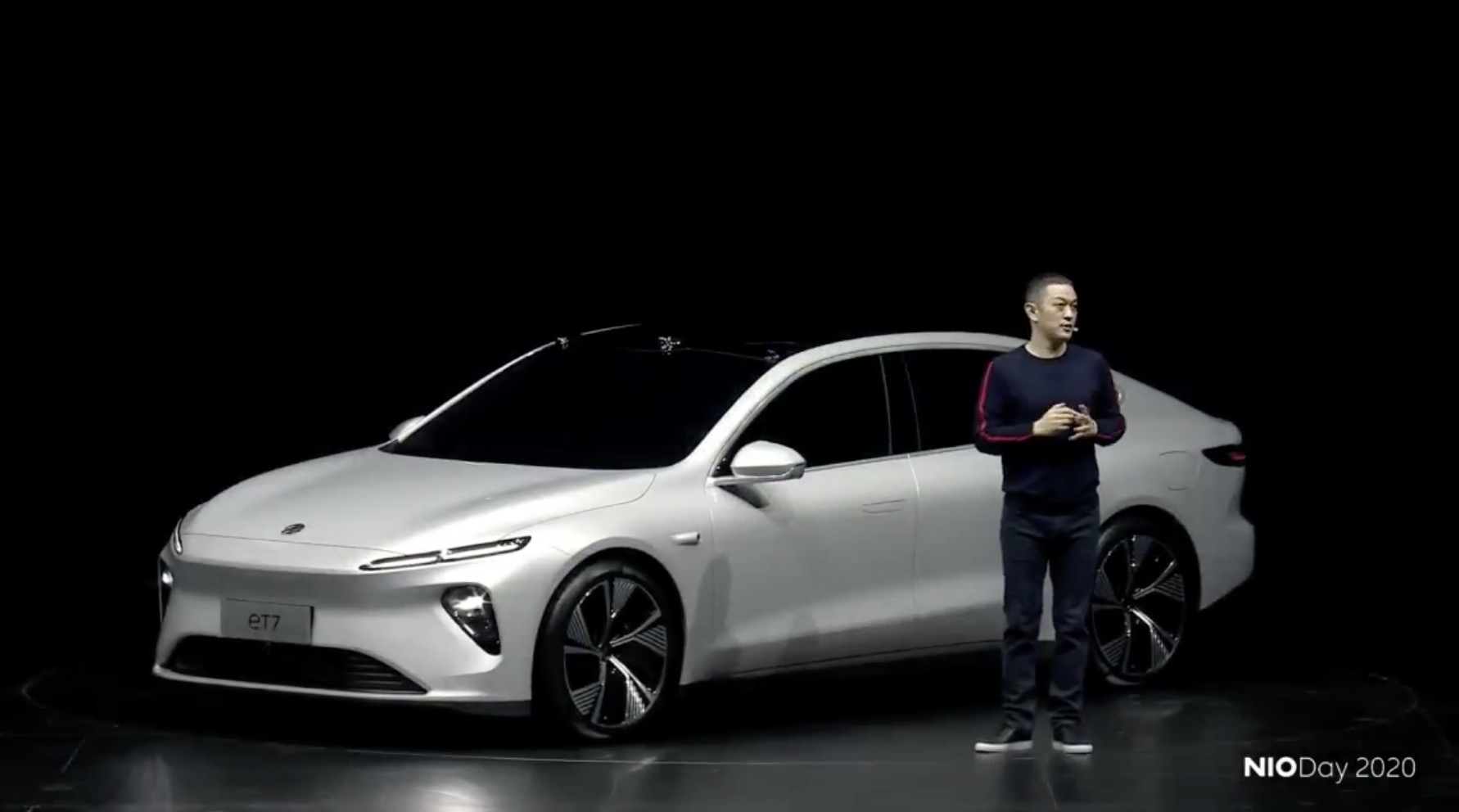
Regarding the laser radar, NIO announced that its laser radar vendor was Innovusion, which is invested by NIO Capital. The laser radar uses a wavelength of 1550 nanometers and a layout of a watchtower, which can recognize vehicles 687 meters away, ice cream cones 262 meters away, and people 223 meters away, which is very close to the level of human recognition.
Quick Comment:This year’s NIO Day can be said to have the most information released and the highest specifications. In an interview after the conference, Li Bin said, “In the short term, NIO’s competitors are undoubtedly BMW, Mercedes-Benz, and Audi. In the long term, I think Apple might be our competitor for a longer period of time.”
Obviously, NIO is striving to become a leader in the intelligent age. With Tesla’s stock market value reaching a new high and Musk becoming the world’s richest man, major technology giants have entered the intelligent electric vehicle field, driving the development and competition of the entire industry and related industrial chains. It can be foreseen that competition in the intelligent electric vehicle field will become more fierce.
The national stock of new energy vehicles reached 4.92 million in 2020
According to statistics from the Ministry of Public Security, the national stock of motor vehicles reached 372 million in 2020, an increase of 24 million from 2019; of which, the number of automobiles reached 281 million, an increase of 21 million from 2019.

At the end of 2020, the national stock of new energy vehicles reached 4.92 million, accounting for 1.75% of the total number of automobiles, an increase of 1.11 million from 2019, or a growth rate of 29.18%. Among them, the stock of pure electric vehicles reached 4 million, accounting for 81.32% of the total number of new energy vehicles, an increase of 900,000 from the previous year. The increment of new energy vehicles has exceeded 1 million for three consecutive years and is continuing to grow at a high speed.
Quick Comment:
In 2020, the domestic new energy vehicle market had a “first suppress and then rise” development. In the first quarter, it was significantly lower than the same period last year due to the impact of the epidemic. The market started to recover in the second quarter, and there was a significant rebound in the third and fourth quarters, maintaining a rapid growth trend.
Currently, new energy vehicles have increased by more than 1 million units for three consecutive years, showing a continuous high-speed growth trend. Under the favorable impact of policies and the environment, the new energy vehicle market is expected to further accelerate its growth this year.
Baidu officially announces the establishment of an intelligent electric vehicle company
Today, Baidu announced the establishment of an intelligent automobile company, and Geely Holding Group will become Baidu’s strategic partner. The newly established Baidu Automobile Company will operate independently within the parent company system and focus on the design, research and development, production, manufacturing, and sales services of intelligent automobiles in the passenger car market.
 ## Translation
## Translation
This cooperation will be based on Geely’s Pure Electric SEA Architecture. With its experience in artificial intelligence, the Internet, and Apollo autonomous driving capabilities, Baidu will support the joint venture’s development. Through this cooperation, Baidu will enter the automotive industry as a vehicle manufacturer.
Quick Comment:
There are more and more companies crossing over to the automotive industry. Previously, Alibaba teamed up with SAIC to establish IM Auto, and Didi Chuxing partnered with BYD to build vehicles to meet the needs of ride-hailing. Internet giants such as Tencent, Amazon, and Alphabet (Google’s parent company) have also entered the field of car manufacturing, either by investing in electric intelligent vehicle start-ups or establishing their own vehicle companies.
Car manufacturing is expensive, whether it’s a complex supply chain or the high cost of power batteries. For cross-border players, these are mountains that need to be overcome. For companies like Baidu that have advantages in technology, choosing to cooperate with automakers rather than building their vehicles like Dyson is undoubtedly a smarter choice.
December Passenger Car Sales Data
According to the China Passenger Car Association (CPCA) statistics, the sales of Tesla China (domestic Model 3) in December 2020 were 23,804 units, ranking third in sales for new energy vehicle manufacturers that month.
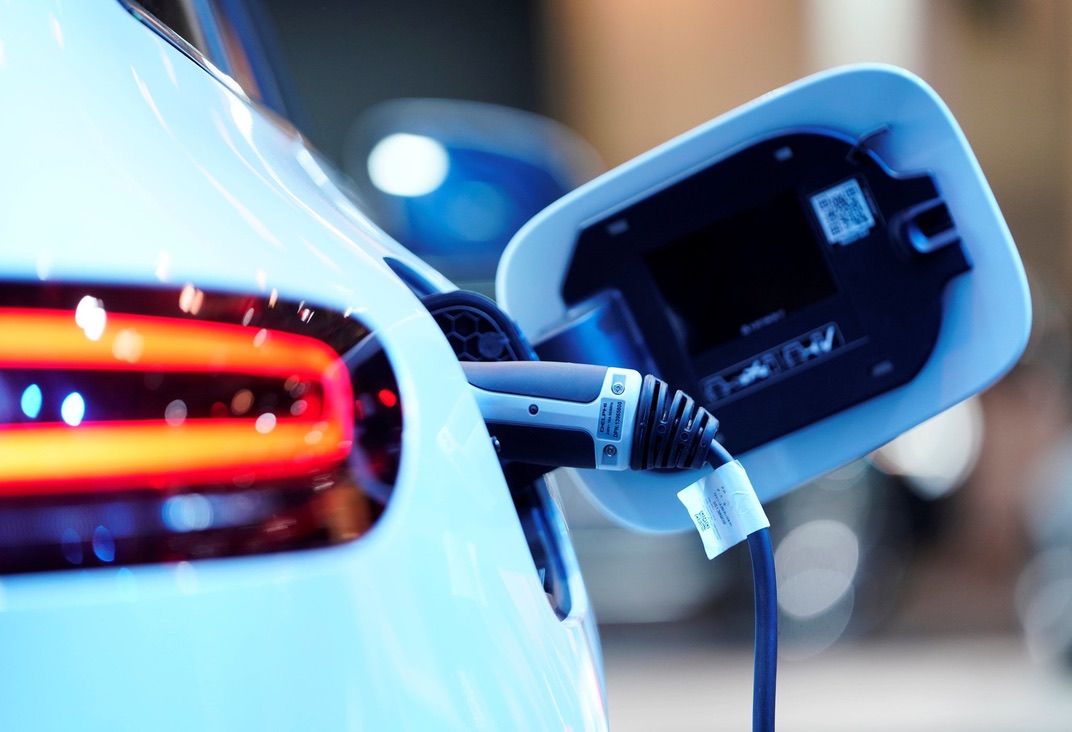
In December, Wuling sold 41,089 new energy vehicles, ranking first in sales among new energy vehicle companies. BYD ranked second with 28,075 units, SAIC ranked fourth with 18,167 units, and Great Wall ranked fifth with 10,792 units. These are the top five Chinese new energy car companies that sold over 10,000 units in December 2020.
Quick Comment:
In December, domestic new car manufacturers such as Nio, Ideal, and XPeng had good sales results, while large groups such as SAIC and GAC performed relatively strongly. Luxury electric vehicle manufacturers from BBA have begun mass production of their electric cars this month. Wholesale sales of conventional hybrid passenger cars in December were 45,700 units, a 62% increase from December last year. Retail sales of new energy passenger cars in December reached 206,000 units, up 58.1% year-on-year and up 20.8% from November in month-on-month terms.
Elon Musk Becomes the New Richest Person in the World
After the opening of the US stock market on January 7th, Tesla’s share price rose sharply, followed by Elon Musk’s net worth surpassing $185 billion, making him the new richest person in the world, surpassing Amazon’s Bezos.Translation:
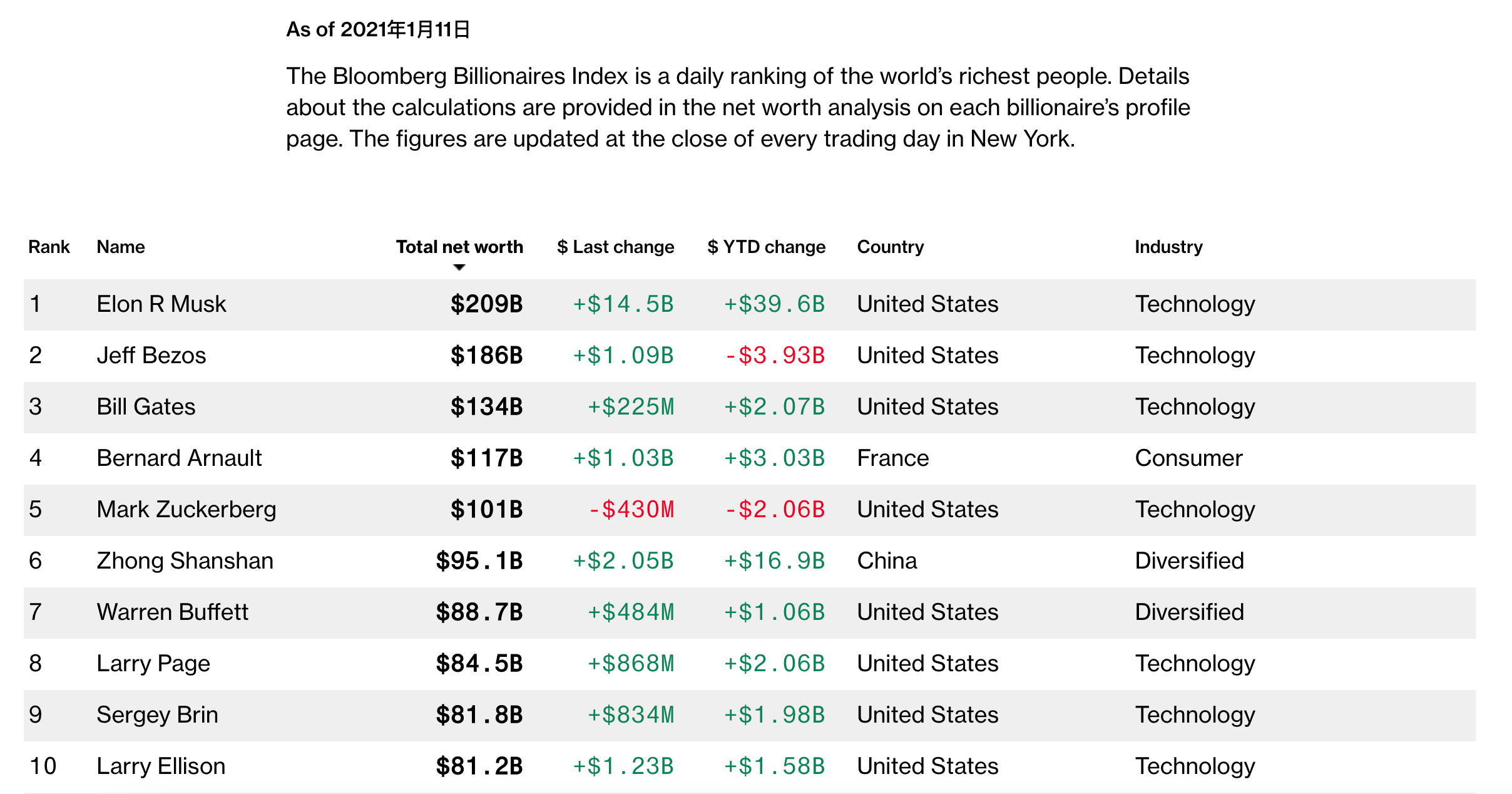
According to the latest Bloomberg Billionaires Index on January 11th, Elon Musk’s assets have reached $209 billion, with Tesla’s stock price at $880.02 per share, and the total market value at around $834.172 billion.
Commentary:
In 2020, Tesla’s stock price has skyrocketed, nearly seven times its price a year ago. After becoming the new richest man, Musk changed his pinned tweet on Twitter, stating in the comment section that he would use half of his wealth to build a self-sufficient city on Mars to ensure the continuation of all species’ life forms, and use the wealth accumulated by Tesla to move towards the vastness of stars and seas of SpaceX.
Apple may collaborate with Hyundai to produce self-driving cars
There has been new progress in the news about Apple’s self-driving car. According to a TV show report by the Korean Economic Daily, Hyundai has completed its discussions with Apple on autonomous driving car collaboration. However, Hyundai later issued a statement stating that “Hyundai is one of several automakers Apple has early-stage discussions with.” A few hours later, Hyundai removed Apple’s name from the statement.

Previously reported by Bloomberg, although Apple has poached various executives and technical personnel from Tesla and other traditional car companies, its project is still in its early stages. It will take at least five years to launch a physical car.
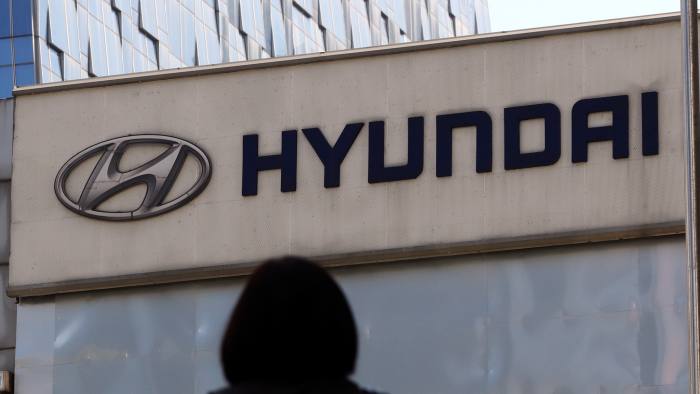
Yesterday, Reuters, citing IT news from Korean media, reported that Hyundai and Apple plan to sign a cooperation agreement on autonomous electric vehicles by March and start production in the United States around 2024.
Commentary:
In the past month, news about Apple’s self-driving car has spread in different directions. This time, after the Korean media reported that Hyundai will collaborate with Apple, Hyundai’s stock price soared by 19%, marking the largest intraday gain in 33 years.
Although Apple is inclined to leak information before its product launches, it has strict confidentiality requirements for the development of its own business. News of collaboration with Hyundai has circulated in different versions, but Apple has always refused to comment.
Model Y prices may drop to RMB 260,000
Recently, Guoxin Securities released a research report on the domestic Tesla Model Y. The report shows that the production cost of the Model Y, priced at 339,900 yuan, is 237,930 yuan, with a gross margin of 30%.

Guoxin Securities believes that with the increasing rate of domestication of parts, there is further room for price reduction for both the Model Y and Model 3. The price of the domestically produced Model Y is expected to drop to 260,000 yuan with a gross margin of 25%.
Quick Comment:
During the New Year’s holiday, Tesla launched the “price butcher” Model Y and the “add quantity without raising the price” Model 3, leading the highly competitive SUV electric vehicle market at the beginning of 2021 with the “shark effect”. At the same time, Tesla’s localization has brought opportunities for the domestic parts industry chain.
With the launch of the Tesla Model Y and the price reduction of Model 3, 2021 will mark the year of explosion for popular new energy vehicles in China, which will drive the entire industry chain of electrification and promote the upgrading of supplier industry chains.
This article is a translation by ChatGPT of a Chinese report from 42HOW. If you have any questions about it, please email bd@42how.com.
